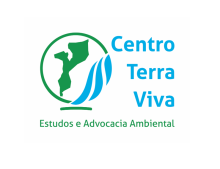
Topics and Regions
Details
Location
Contributions
Displaying 41 - 50 of 223Apoiando a agricultura sustentável em Moçambique
Em Moçambique há um forte apoio à agricultura sustentável: métodos como sistemas agroflorestais e agricultura de conservação são promovidos cada vez mais pelo Ministério da Agricultura, a sociedade civil, organizações de camponeses e agências de desenvolvimento. Resultados de investigações sugerem que essas práticas aumentam a produtividade, são mais resilientes e economicamente acessíveis. Apesar disso, a adoção pelos pequenos produtores permanece baixa.
Growing sustainable agriculture in Mozambique
In Mozambique there is strong support for sustainable agriculture from different actors, with approaches including agroforestry and conservation agriculture increasingly promoted throughout the country by the
Ministry of Agriculture, civil society, farmers’ groups and development agencies. Research trials and anecdotal evidence suggest that these practices increase yields, are more resilient and are economically accessible for small-scale farmers. Despite this, uptake among smallholders remains low.
Sustainable agriculture for small-scale farmers in Mozambique
Sustainable agricultural approaches such as agroecology can help producers increase productivity while protecting the environment and strengthening resilience to climate change. Nonetheless, policymakers rarely support them on a large scale and take-up remains low. This report analyses the factors determining the adoption of sustainable practices in Mozambique, exploring whether a common understanding of ‘sustainable agriculture’ exists, how this is reflected in policy and practice, and what drives farmers (not) to adopt them.
Testing REDD+ in the Beira Corridor
The Testing REDD+ socioeconomic baseline study of the Beira landscape corridor confirmed the drivers of deforestation and forest degradation as unsustainable agriculture practices, including shifting cultivation and fire used to clear land, to hunt and to collect honey. The role of hunting and honey collection shows how harvesting non timber forest products (often referred to as NTFPs) can degrade forests — because of the use of fire.
Community-based advocacy: Lessons from a natural gas project in Mozambique
Mozambique has become a hot spot in the global rush for land in the last decade. Growing investments in sectors such as mining, hydrocarbons, forest plantations and industrial agriculture most often target rural land held by local communities under customary law, and conflicts between communities and investors often arise. Existing laws regulating land are poorly implemented and enforced, which is due to the power imbalances existing between the government, companies and local communities.
Défense des droits communautaires : enseignements tirés d’un projet de gaz naturel au Mozambique
Ces dix dernières années, le Mozambique est devenu une cible privilégiée de la ruée mondiale vers les terres. Les investissements croissants dans les secteurs de l’exploitation minière, des hydrocarbures, des plantations de forêts et de l’agriculture industrielle visent le plus souvent des terres rurales qui, en vertu du droit coutumier, sont détenues par les communautés locales. En découlent de fréquents conflits entre les communautés et les investisseurs.
Tracking Adaptation and Measuring Development in Mozambique
Tracking adaptation and measuring development (TAMD) is a twin-track framework that evaluates adaptation success. Track 1 assesses how widely and how well countries or institutions manage climate risks, while Track 2 measures the success of adaptation interventions in reducing climate vulnerability and in keeping development on course. This twin-track approach means that TAMD can be used to assess whether climate change adaptation leads to effective development, and how development interventions can boost communities’ capacity to adaptation to climate change.
Tracking Adaptation and Measuring Development (TAMD) in Mozambique
Mozambique is the 8th most vulnerable country to climate change and is one of the poorest countries in the world with a high dependency on foreign aid. The population is primarily rural and dependent on agriculture, with 60% living on the coastline. Droughts, flooding and cyclones affect particular regions of the country and these are projected to increase in frequency and severity.
Contrato de Concessão e pesquisa e produção com a ENI EAST AFRICA
Este documento é o contrato de Concessão e pesquisa e produção entre o Governo da Republica de Moçambique e ANI EAST AFRICA S. p.a e a Empresa Nacional de Hidrocarbonetos E. P. para a área 4 Offshore do bloco do Rovuma
Aspectos jurídicos do papel da administração pública na gestão da terra em Moçambique
A gestão directa ou indirecta da terra é realizada por actores diversos, como seja, aqueles que intervêm nas Comunidades Locais (artigo 24 da Lei de Terras de 1997), os titulares dos direitos sobre a terra (singulares, investidores) etc, para além da Administração Pública (AP). Contudo, o papel de gestão da terra reservado a AP é muito importante e estratégico.










